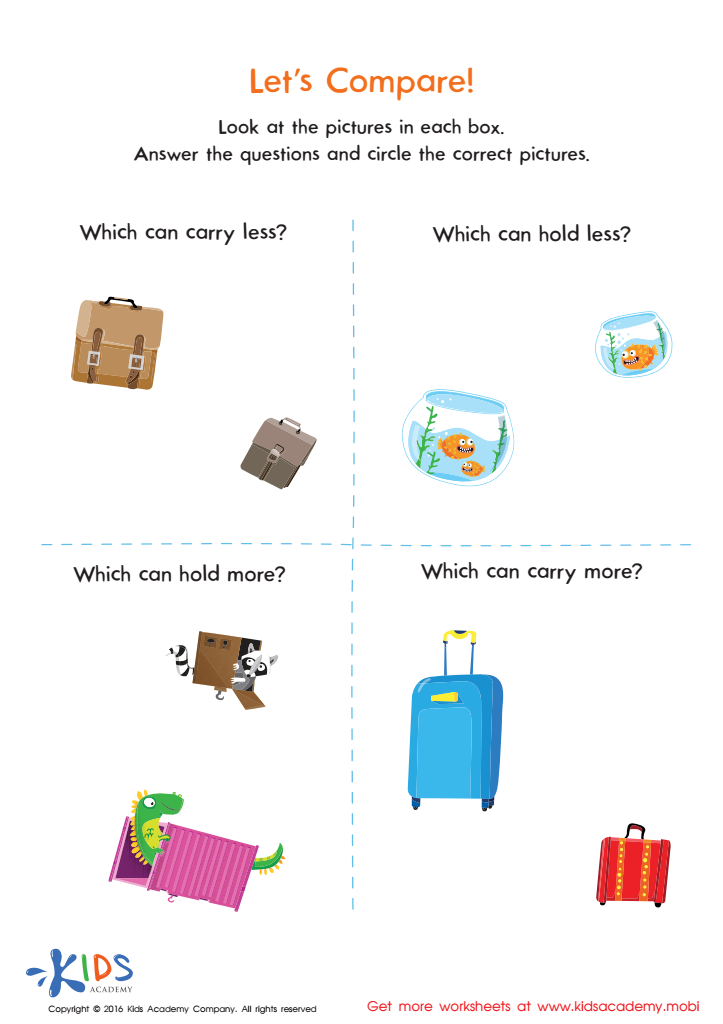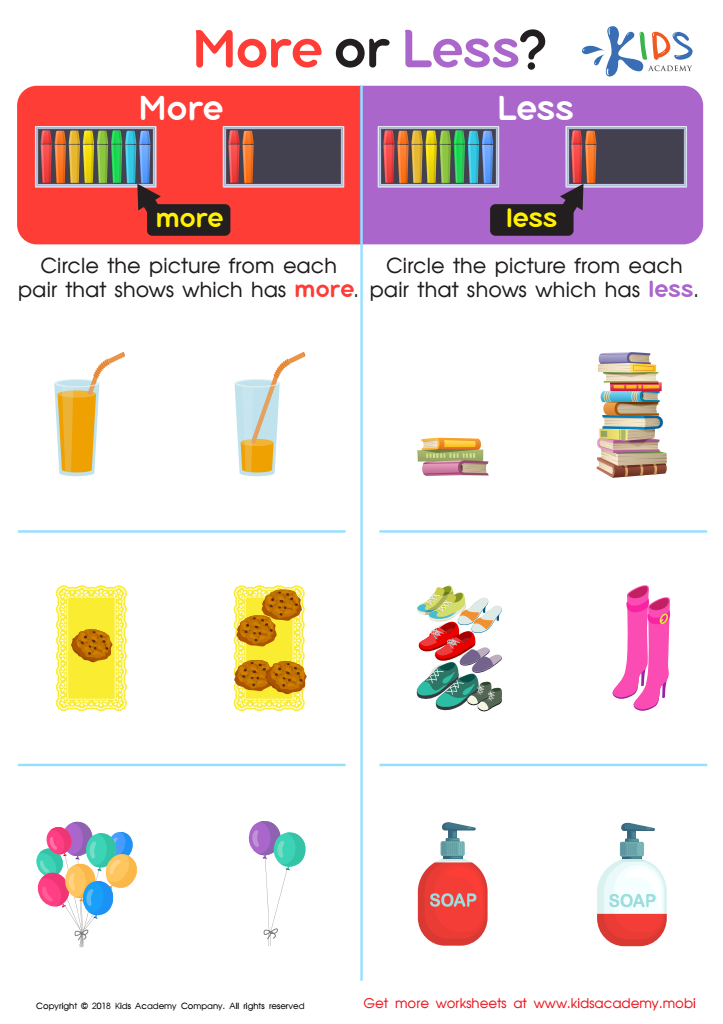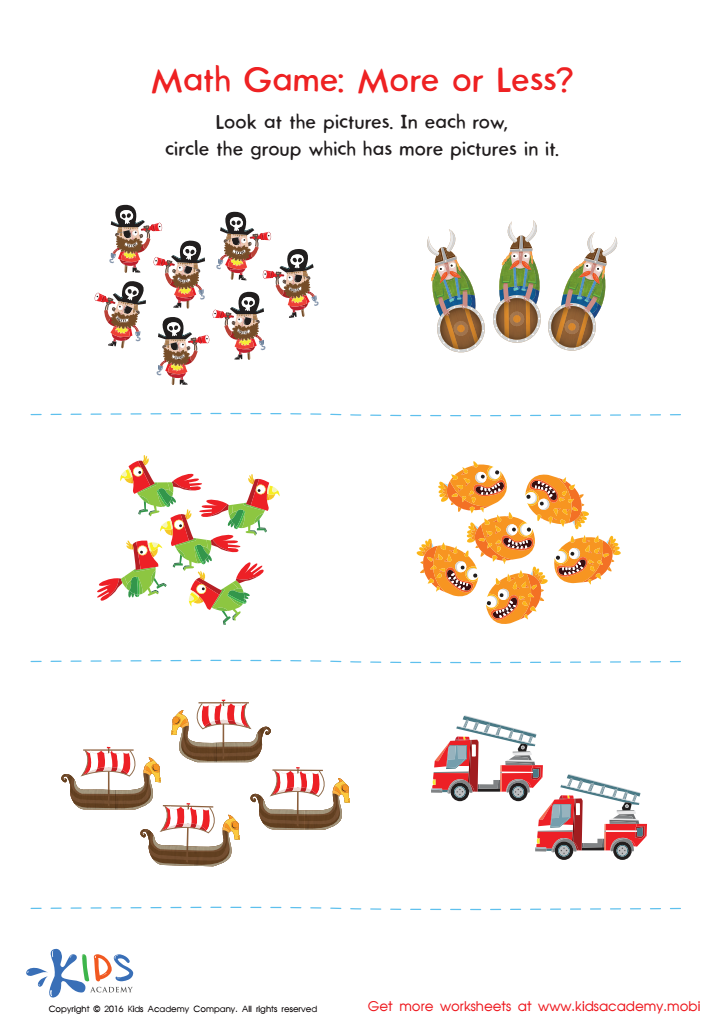Number comparison skills Math Worksheets for Ages 3-8
3 filtered results
-
From - To
Boost your child's math confidence with our Number Comparison Skills Worksheets, expertly designed for ages 3-8. These engaging printables enhance early math abilities by teaching kids to recognize greater than, less than, and equal to concepts. Fun, visually appealing exercises transform learning into an exciting adventure, laying a solid foundation for advanced math. Perfect for preschool to early elementary students, our worksheets progressively build essential comparison skills through enjoyable and interactive activities. Download today and make math a fun and engaging experience for your young learner! Help them master number comparisons effortlessly with our carefully crafted resources.


Let's Compare Worksheet: Big or Small


More or Less? Worksheet


More or Less Worksheet
Number comparison skills in young children are fundamental for their early mathematical development and overall cognitive growth. For ages 3-8, being able to compare numbers lays the groundwork for more complex math concepts and operations that they'll encounter in their educational journey. Here's why parents and teachers should prioritize these skills:
-
Numerical Understanding: Early number comparison helps children grasp basic numerical concepts, such as determining which numbers are larger or smaller. This intrinsic sense of number magnitude strengthens their numerical fluency.
-
Foundation for Future Math: Comparing numbers prepares children for future topics like addition, subtraction, multiplication, and division. It’s a stepping stone for learning arithmetic operations, place value understanding, and problem-solving skills.
-
Cognitive Development: It enhances cognitive abilities such as logical thinking and reasoning skills. By comparing quantities, children learn to process information and make informed decisions based on numerical data.
-
Confidence and Interest: Early success in number comparison can boost children's confidence and interest in math. It turns abstract numbers into relatable concepts, making math fun and engaging rather than intimidating.
-
Practical Life Skills: Beyond the classroom, number comparison skills are essential in everyday life. From comparing prices while shopping to understanding time and schedules, these skills are crucial for effective decision-making.
Incorporating playful and interactive methods to teach number comparison, such as using games, puzzles, and hands-on activities, can make learning engaging and enjoyable for young minds.
 Assign to My Students
Assign to My Students





















